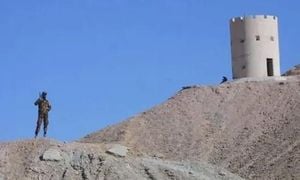Parents, children, and healthcare workers across Nigeria are bracing for uncertainty as the new U.S. administration's recent executive order to pause foreign aid for nine months threatens HIV/AIDS programs. The mandate, which took effect on January 30, 2025, compels stakeholders to forge domestic solutions amid looming gaps.
Nigeria has seen incredible support from international partners, particularly through the President’s Emergency Plan for AIDS Relief (PEPFAR), which has been instrumental since its establishment. This initiative has been pivotal, accounting for nearly 90% of the nation’s HIV treatment efforts. With the highest number of people living with HIV/AIDS in West and Central Africa, Nigeria's healthcare system significantly depends on foreign assistance.
On January 28, just days before the freeze was announced, the U.S. government granted a waiver for the continued distribution of lifesaving antiretroviral (ARV) medications, ensuring immediate access for countless individuals fighting the disease. Dr. Temitope Ilori, the Director General of the National Agency for the Control of AIDS (NACA), expressed gratitude for this measure, but her concerns about the continued efficacy of HIV/AIDS programs under changing foreign aid policies are palpable.
"The Nigerian government would intensify domestic resource mobilization strategies to reduce the risks of donor aid policy shifts to the HIV response," Dr. Ilori stated on Thursday, highlighting the urgency for Nigeria to strengthen its financial autonomy amid this new reality. She underscored the necessity of collaborating with various stakeholders, including state governors and civil society organizations, to maintain hope for the target of ending AIDS by 2030.
This sobering turn of events has sparked alarm not only within Nigeria but also across several African nations. For example, hospitals and clinics have begun witnessing the fallout of U.S. aid cuts as organizations have struggled to maintain operations without their usual funding. Reports from Uganda and Kenya paint distressing pictures; clinics there are flooded with patients vying for the last available doses of life-saving treatments.
"The U.S. is barring them from providing drugs..." reported health officials discussing how funding pauses disrupt treatment continuity, indicating the far-reaching effects of such fiscal decisions.
Despite these challenges, the Nigerian government seeks to position itself as reliable and resourceful. There is recognition within the government of the need for home-grown solutions and financial sustainability. "Through effective stakeholder collaboration, creating favorable policies, and advocacy to policymakers, Nigeria can still achieve the target of ending AIDS by 2030," Dr. Ilori affirmed.
The Nigerian government emphasizes the importance of public awareness and continual advocacy efforts, urging the public and private sectors to support the fight against HIV/AIDS. It is increasingly evident they must carve out paths of resilience as the structure of international aid evolves.
The grim effects of U.S. foreign aid decisions extend beyond Nigeria’s borders, troubling global HIV/AIDS efforts. Many nations are charting paths through reliance on external funding—but as funding diminishes, patients' access to care has already begun to dwindle. Refugees from Myanmar, also cut off from care as hospitals shutter due to funding pulls, and clinics shutting down across South Africa tell tales of vulnerability echoed around the continent.
Years of progress are at risk as nations rethink their approaches to HIV aid and pandemic responses amid shifting political landscapes. Every nation must rally together, focusing on collaboration to withstand impending challenges.
Nigeria aims to secure funding through civic-led initiatives, enhanced partnerships between public health organizations, and renewed commitments from politicians. "We encourage the patient community to continue accessing HIV treatment services..." Dr. Ilori stated, urging all stakeholders to remain steadfast amid uncertain times.
While apprehension grows over the future of foreign aid and its fundamental effects on public health, the Nigerian government’s drive toward self-sufficiency and unwavering commitment to combatting HIV/AIDS reflect resilient determination. Their efforts remain indicative of hope—a narrative shared throughout Africa as nations grapple with sustaining health initiatives under changing political and financial dynamics.



